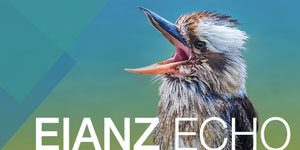-
Member Login
- Home
- About
- Institute Groups
- Membership
- Events
- News & Publications
- Institute Programs
- Resources
- Jobs Board
- Contact Us
- Site Info
EIANZ Advocacy | Indigenous Engagement
Land management
As a peak body representing environmental practitioners, the Environment Institute of Australia and New Zealand acknowledges that current environmental assets are a legacy of stewardship by the Indigenous Peoples of both countries. The Institute appreciates the long prior history of indigenous land, water and sea management, and respects the traditional knowledge and connection to country embodied in that history.
The environment profession shares an affinity with the indigenous concepts of ‘caring for country’ and Kaitiakitanga (resource guardianship and stewardship). In recognition of the close association between the natural environment, cultural values and indigenous communities, and the importance of these links to current society and future generations, the Institute seeks closer engagement with the traditional custodians of the land in Australia and New Zealand.
The destruction of 46,000-year-old caves at the Juukan Gorge in the Pilbara region of Western Australia.
The EIANZ shared the widespread concern voiced by heritage professionals, Aboriginal People and the wider community over Rio Tinto’s destruction of the 46,000 year old Juukan Gorge rockshelters in the Puutu Kunti Kurrama and Pinikura (PKKP) lands in May 2020. It is the EIANZ’s hope that the impact on heritage and cultural values of Juukan Gorge, and resulting distress to the Traditional Owners, can serve to drive a better understanding of the value of Aboriginal heritage places and how and why they need to be protected well beyond the life of any individual project.
Proposed changes to the Code of Ethics and Professional Conduct
A Corporate Plan initiative of EIANZ is to advance the role of Indigenous knowledge. The Board publicly released a Statement of Objectives for Indigenous Engagement in May, which included a commitment to recognise Indigenous values and practices in the Institute’s Code of Ethics and Professional Conduct.
These changes are currently undergoing membership consultation and are expected to take effect in early 2021.
read the statement of objectives
read the message from the eianz president
Giving voice and listening to Indigenous leaders
The EIANZ’s immediate objective is the encouragement of environmental practitioners in a process of respectful listening and developing our understanding of the role of Indigenous values and environmental management practices, integrated in the work of the environment profession. As part of this initiative, the Institute has hosted several webinars on Indigenous Environmental Knowledge this year:
- Webinar with Bruce Pascoe | 28 May 2020
The Dark Emu author and Yuin, Bunurong and Tasmanian man explained how the environment profession needs to better understand and draw on 65,000 years of Aboriginal knowledge of land management if we are to restore our environment and set Australia on a sustainable path. - Webinar with Wayne Davis on Traditional Indigenous Methods Used in Land Management, including fire
Wayne spoke about his almost 40 years on-ground experience of ‘caring for country’. - Webinare with Mike Smith, Iwi Leader & Chair of Iwi Chairs Climate Change Rōpū.
Mike champions Māori efforts to support the development of collective solutions, reducing greenhouse gases and accelerating Māori resilience to climate change.
SEEKING INDIGENOUS COLLABORATORS AND EXPERTS
To further our mission of promoting Indigenous voices and land management practices, we invite Indigenous collaborators and experts to make contact with the EIANZ. If you or someone you know has experience in Indigenous land/water management or is an Indigenous knowledge practitioner in Australia or New Zealand we would love you to contact us.
 This article was originally published for our quarterly newsletter the EIANZ Echo. |
We acknowledge and value the rights and interests of Indigenous Peoples in the protection and management of environmental values through their involvement in decisions and processes, and the application of traditional Indigenous knowledge.

